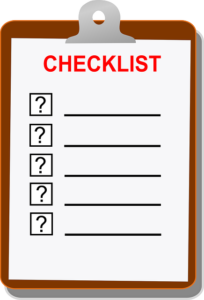Will your presentation put people to sleep? To find out, all you have to do is ask yourself one simple question. If the answer is yes, your communication is tedious.
We’ve all been there–asleep with our eyes open.
As bad as it feels to be stuck in a meeting that bores you to tears, it’s even worse to be the speaker that bores everyone else to tears. When you find out that you are a tranquilizer, it’s downright embarrassing. You simply do not want to be responsible for the I’d-rather-watch-my-toenails-grow trance.
We all know what it feels like too be boring. We all know what it’s like when people just aren’t listening. We know what it’s like when people find an excuse to leave. You know what it feels like when someone’s cell phone notification is more interesting that you.
You put all that effort in … for what? To be ignored?
Introducing … the “Tedium test.”
Why People Aren’t Listening
There are lots of reasons people may not give you their undivided attention. Maybe they’re distracted. Maybe something else is a legitimate priority. Maybe they just don’t care.
 But all of those things are exceptions. Most of your public speaking will happen to an audience that CHOOSES to be present. Either they want to listen, or it’s they’re job to listen, so they should care.
But all of those things are exceptions. Most of your public speaking will happen to an audience that CHOOSES to be present. Either they want to listen, or it’s they’re job to listen, so they should care.
If you don’t want to listen to the preacher, you generally don’t go to the church.
I’ve found that the vast majority of the time when the presentation feels tedious, it’s for one of two reasons–either:
- The speaker is telling you something you don’t think you need to know
- OR the speaker is telling you something you already know.
Need to Know Information
Think about it, why are all those company meetings on policy and rules so tedious. Why? Because you don’t really need to know. They have to legally tell you a lot of things that very few people ever actually need.
I used to work with financial advisers. Because of SEC and other government regulations they have to deal with a long process of compliance. Most of them have to get all of their presentations approved by a compliance process before they are allowed to speak at all.
 It’s very similar in many industries. It’s not entirely the speaker’s fault. The speaker is often required to say a lot of things that the audience doesn’t actually NEED to know.
It’s very similar in many industries. It’s not entirely the speaker’s fault. The speaker is often required to say a lot of things that the audience doesn’t actually NEED to know.
In fact, I’m willing to bet that if you’ve ever been “assigned” a presentation you were also assigned a lot of things you were “supposed” to say. Sometimes we have a topic to do list.
Isn’t that the high school students’ number one complaint: “When am I ever going to need to need this?”
If the listener doesn’t see an obvious answer to that question, you will sound tedious.
Already Known Information
Perhaps the only thing worse than required information that you probably don’t NEED to know is unnecessary time spent on information that you already know.
Would you enjoy attending an hour long class on learning the alphabet?
How about a presentation on “Tying your shoes for beginners?”
Traffic school anyone?
Why do people hate traffic school so much when they get a speeding ticket? Because you have to sit there all day, even when you already know 80% of everything they say.
Rehashing known information is much worse than delivering unneeded information. At least unneeded information can be new, or made relevant, or at least pass the time. At least unneeded information has potential to be useful if the speaker can demonstrate the relevance.
On the other hand, being told what you already know is the very definition of tedious–and condescending to boot.
Tedious: Tiresome because of length or dullness
Merriam-Webster
Did you see what I did there? I told you what tedious means–as if you didn’t already know.
Now, if you didn’t already know, that’s one thing, but if you do know what tedious means, then telling you what tedious means is tedious. Even worse, my telling you that telling you is tedious–is tedious–because you already know!
Get it?
Tedious Editing
 So here’s the part you’ve been waiting for–the solution. Whenever you have a presentation or a script to edit, sit down and ask yourself one question about everything you say:
So here’s the part you’ve been waiting for–the solution. Whenever you have a presentation or a script to edit, sit down and ask yourself one question about everything you say:
Does the listener already know?
How many times have you heard a speaker give a dictionary definition–that everyone already knows?
Definition: an explanation of the meaning of a word
Merriam-Webster
How many times have you heard a speaker repeat the obvious:
The title of my talk is …
That speaker never considers the fact that it’s projected in big bold letters on the screen behind him–and everybody already knows!
How many times have you heard a speaker say the obvious:
In the year 2000 we didn’t all have cell phones.
In the words of my entire junior high school: “No Duh!”
Yet you say things like that all the time. You do it. I do it. Everybody does it. Statements like that can be used to build commonality and rapport, but I hear them WAAAAAY too often presented as if it’s new information.
The first step to editing out the tedium is to look for those statements of the obvious–that every listener already knows (as if you need me to define “obvious”).
Obvious: Easily understood
Merriam-Webster
I hope that I’m being obviously tedious.
I hope you don’t.
Tweak the Tedium
After you eliminate as much of the tedium as possible, you’ll probably find out you still have to say some of it. Sometimes you’re required to cover certain topics, and sometimes articulating the obvious is necessary to establish some context.
So how do you remove the tedium from something you have to say even if everybody already knows it?
Or even if you know that they know that they don’t really need to know, but you have to say it anyway?
 How?
How?
You have to tell them something they DON’T KNOW FIRST. Transition into the known with something unknown, or less specific:
- personal stories
- personal motivations
- unknown facts
- your imagination
- hypothetical situations/descriptions
- metaphors and analogies
- conversation
- mental recall
- emotional content
- live demonstration
- less familiar pictures
- less familiar body language
- less familiar vocals intonations
- less familiar delivery style
- lesser known context
- and so forth
Examples
How many times have you heard this quote:
The only thing we have to fear is fear itself
–Franklin Roosevelt
It’s not a bad quote. It’s a good message. That’s why people keep repeating it, but no matter how good the message, once we know it by heart, it becomes more and more tedious every time we hear it.
Ever hear of a nagging spouse? At some point we don’t want to hear it again. Or as my teenage daughter often irritably responds when we remind her of her responsibilities (that she already knows): “I know! I’m not stupid!”
When they already know, it’s hard for your repetition not to sound condescending–and tedious.
Solution 1: Pick a different example
When possible, pick non-cliche examples that will be surprising and refreshing. In other words, the best solution is not to use the FDR quote. Unfortunately, familiar examples are easier to think up. Novel examples take a lot more effort.
Solution 2: Less familiar context
In the depths of the great depression in 1933, Franklin Roosevelt was just reelected. At his inauguration he wanted to share his optimism that “this great Nation will endure as it has endured, will revive and will prosper.” He continued, “The only thing we have to fear is fear itself.”
By adding context that not everybody already knows, you infuse the familiar quote with new life.
Imagine a giant, hairy, purple, 10-foot tall, fang-tooth monster. That monster represents your fears. And as Roosevelt said, “The only thing we have to fear is fear itself.” Don’t be afraid of economic problems, relationship problems, or even war itself, be afraid of the monster fear, which of course is all just in your imagination.
Notice how by adding the unknown metaphor first, you don’t even notice that the quote is cliche–because your version isn’t!
Solution 4: Personal experience
One time I was held at gunpoint …. [continue story] … I was staring down the barrel of a gun and remembered Roosevelt’s words: “The only thing we have to fear if fear itself.”
It doesn’t feel like it’s about something old and cliche, it feels like its about something new or suspenseful or humorous or … whatever.
Is This Tedious?
I could create dozens more examples. Use anything from the list above or create your own transition. It doesn’t matter what you say as long as it passes the “Tedium test:”
Does the listener already know?
If the answer is “NO,” you pass the test. The listener will listen to the next thing you say … even if it’s something that would otherwise be tedious.
If you want to take it up one more notch ask the follow up:
Does the listener know why he or she should want to know?
Don’t get me wrong. There are other ways to be tedious, even if the listener doesn’t know what you’re talking about. The “tedium test” doesn’t tell you when you’re NOT tedious, it only tells you when you are.
That’s it–don’t talk about what the listener already knows. But of course, you know that I know that you know that you shouldn’t rely on saying things the audience already knows, so I’ll shut up and stop repeating it.
If not for the influx of a little silliness (which you can’t know in advance), I would have already failed the “Tedium Test”–and I know you know that I know better.


